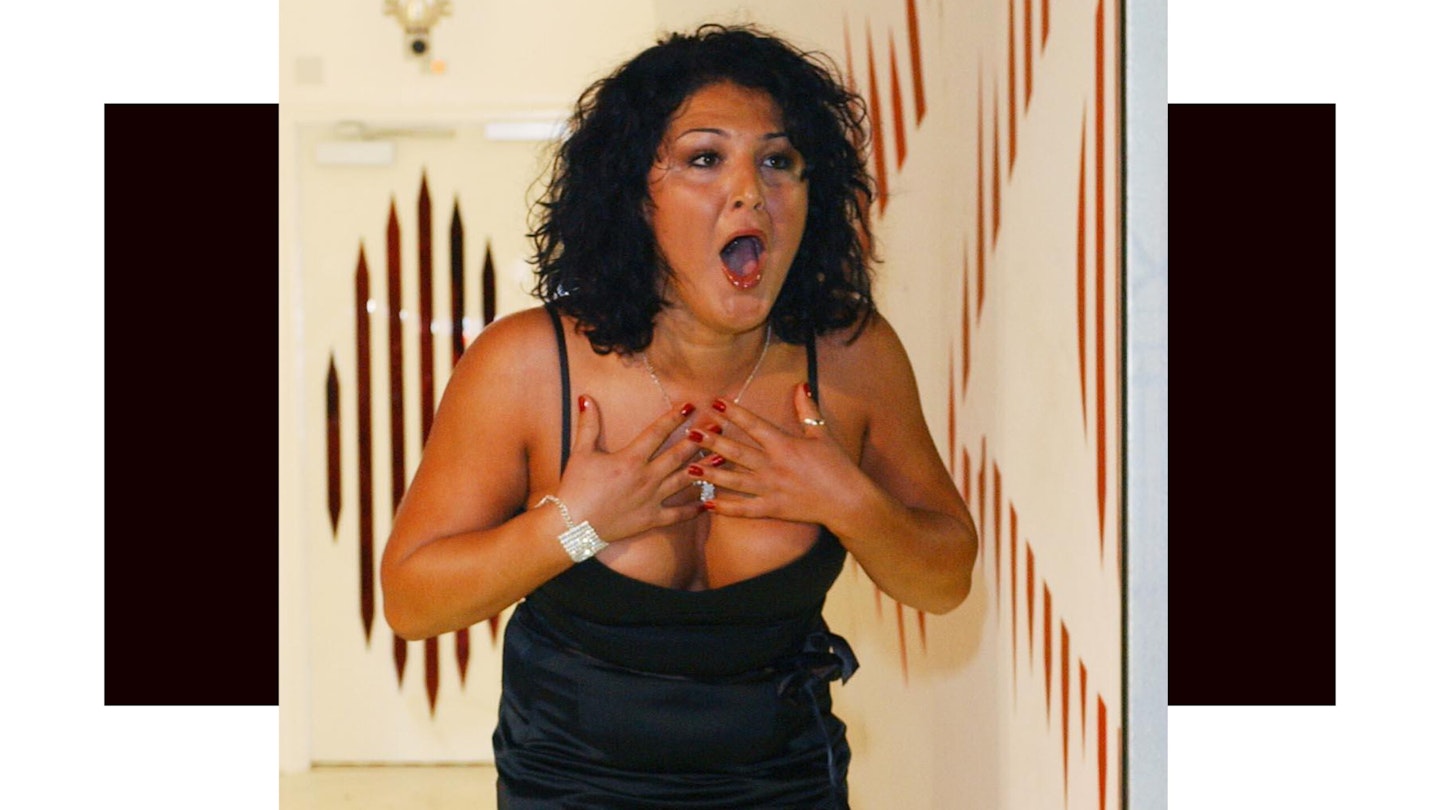When Nádia Almada won Big Brother in 2004, it was a landmark moment for transgender people. The audience knew that Almada, a bank clerk from Portugal, was trans, and we adored her: she was outspoken, charismatic and funny. It was
a time before Twitter, and long before the culture wars – and when she left the show, with over three million votes, she was overwhelmed with love.
Two decades on, however, trans rights have become controversial. Prime Minister Rishi Sunak recently said that the public are being ‘bullied’ into believing that ‘people can be any sex they want to be’.
‘I felt sick to my stomach when I heard that,’ Almada tells Grazia. She points out that, according to Stonewall, hate crimes against trans people have increased 186% in five years. ‘The smallest minority in the country is being vilified, dehumanised and politicised – and why? I don’t understand.’
At this difficult moment, Big Brother has returned with a trans housemate of a new generation – 18-year-old youth worker Hallie Clarke, who on her second day on the show announced, ‘I thought I’d let everyone know I’m trans, if you didn’t know already.’
For Almada, it was a bittersweet moment. ‘I love that she empowered herself by taking ownership of how she identifies,’ she says, ‘but I hope that in 10 or 20 years, that conversation won’t be necessary. Why should she have to explain herself ?’
During her own time on Big Brother, Almada chose not to discuss being transgender. ‘I didn’t want to be labelled as anything other than Nádia – an immigrant having the best time of her life.’
Clarke has spoken openly about it. ‘If I win, I’m going to get a vagina,’ she told housemates, ‘and I’m going to pay my mum back for all the years she paid for my treatment.’ Gender-affirming surgery will cost around £30,000, she added. ‘Otherwise it’s five-plus years on the waiting list, I think, and I don’t want to wait that long.
I’ve never had a boyfriend – I’ve never done anything sexual with anyone, because I’m just not comfortable in my body.’
While Almada supports Clarke, she points out that trans people shouldn’t need to do reality TV in order to access care. ‘If she’s using this platform because she needs that surgery, is that the right reason for her to be there? And what does it say about us as a society?’
ITV has measures in place to protect housemates: they’ve been given ‘respect and inclusion’ training, and their family and friends have agreed not to post on social media. There’s also ongoing mental health support. ‘I hope Hallie will be taken care
of for years to come, if that’s needed,’ says Almada. ‘Aftercare in the early 2000s was maybe one chat with a psychologist and then you had to fend for yourself.’
Though she’s horrified by the trans-rights debate, Almada hasn’t lost faith in British people. ‘The beautiful country that I’ve been living in for all my adult life is not bigoted,’ she says. ‘For me, the most important thing we can do is register to vote – because the Government is not speaking for us.’
